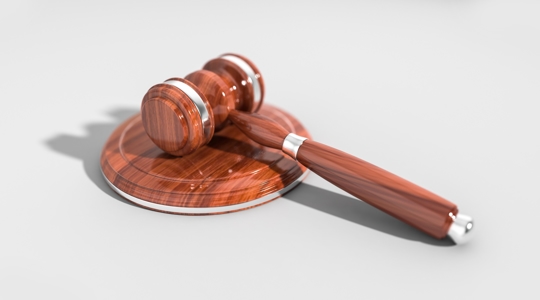Welcome to the DLG blog! This post is the first in a series exploring the ways in which you can change a court order without the opposing party’s consent. In the State of New Jersey, when you disagree with an order, you have five options:
- File a motion for reconsideration;
- File an appeal;
- File a motion to vacate;
- File a motion to modify based on “changed circumstances,” which applies only to custody and support orders; and
- Request correction of a clerical error. I will briefly outline the options here and provide an in-depth analysis of each as this series continues.
1. RECONSIDERATION. A motion for reconsideration must generally be filed within twenty days of receiving a final order. Motions for reconsideration are applicable only when the court’s order is based on plainly incorrect reasoning, when the court failed to consider evidence, or there is good reason for it to consider new information on an issue decided. However, when seeking reconsideration of a non-final order (i.e., an “interlocutory” or “pendente lite” order), no time limit applies, and the burden is much lower. If you are not yet divorced, you can safely assume the order is non-final. But remember, whether an order is final or non-final in the post-judgment context can be much more complicated, and the deadlines are strictly enforced. The Rules of Court prohibit the Superior Court from extending the reconsideration deadline for final orders.
2. APPEAL. You always have the right to appeal a final order. Generally, that appeal must be filed within 45 days of the date on which the order was entered. However, when attempting to appeal a non-final order (i.e., an “interlocutory” or “pendente lite” order), you must request permission from the Appellate Division, which is rarely granted. Generally, you must file the request for permission to appeal within 20 days of the date on which you received the order. The Appellate Division takes these deadlines very seriously. Nevertheless, there are limited circumstances in which these deadlines can be briefly extended.
3. MOTION TO VACATE. Even after the appeal deadlines expire, you have another option: file a motion to vacate the order. There are several reasons listed in the Rules of Court that might warrant vacating a Court Order, including the following: (b) newly discovered evidence which would probably alter the judgment or order and which by due diligence could not have been discovered in time to move for a new trial; (c) fraud, misrepresentation, or other misconduct of an adverse party; (d) the judgment or order is void; (e) the judgment or order has been satisfied, released, or discharged, or a prior judgment or order upon which it is based has been reversed or otherwise vacated, or it is no longer equitable that the judgment or order should have prospective application; or (f) any other reason justifying relief from the operation of the judgment or order. Depending on the reason for which you are asking to vacate the order, you are required to file your motion either within one year of its entry, within a “reasonable time,” or at any time.
4. CUSTODY/SUPPORT ORDERS. The fourth option applies only to custody and support orders. Those kinds of orders are modifiable at any time on a showing of “changed circumstances.” In terms of child support, the change in circumstances is typically financial. The change must be non-temporary and relatively substantial. In terms of custody orders, the change may be anything that affects the best interests of the children. If the Court finds that circumstances have changed, the Court will consider whether the existing order is no longer in the best interests of the children. Thus, a motion for a change in custody will be governed initially by a changed circumstances inquiry and ultimately by a simple best interests analysis. Finally, it bears nothing that the Court should only consider changes that have occurred after entry of the previous order.
5. CLERICAL ERRORS. Correction of a clerical error can occur at any time and does not necessarily require a motion. It is permissible for the Court to correct a simple clerical error upon receipt of a letter from your attorney. Clerical errors include, for example, simple mathematical mistakes. But be warned, there is often significant disagreement over whether an error was merely clerical or was actually a substantive mistake.
All the requests above are made by filing a motion with the Superior Court, except appeals (which are filed with the Appellate Division) and correction of clerical errors (which do not necessarily require a motion).
If you disagree with a court order, contact the DeTommaso Law Group, LLC to schedule a consultation. Our New Jersey divorce attorneys understand the importance of comprehensive, detail-oriented, and aggressive representation. We will review each of these options to determine which is applicable to the specific facts of your case and to develop the best possible strategy on your behalf.
